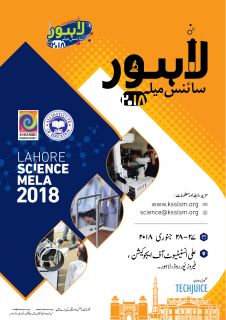For the past three years, I am fully into science writing and journalism, and I penned down a couple of science updates on epigenetics, climate changes, environment, health, and especially space travel and astronomy. I have ventured out a bit of science history and some of the most influential scientists of the 20th and 21st centuries like Einstein, Stephen Hawking, Thomas Edison, Dr. Nozair Khawaja, and Dr. Yarjan Baloch.
In 2019, the science around the globe blew out into some impressive feasts. The mind bogging discovery of this year was the stunning image of the black hole that undoubtedly was fairy tale not only for astronomy geeks and researchers but for casual out lookers as well. An international team of collaborators that includes a network of scientists around the globe released the first image of the event horizon of the black hole at the center of Milky Way galaxy M87 that eventually leads to broadening our understanding of the universe.
Another remarkable achievement of 2019 was that people finally started focusing their attention on some significant threats to planet earth like climate change and global warming. This struck a chord with outgrowing youngsters to think ahead from a stereotype and to what their planet could look alike. Greta Thunberg was among millions of them who came forward and triggered off a battle against climate change. She launched a global movement of teens and school strikers and pressurized our governments to listen to what science is increasingly alarming, “the house (Earth) is on fire.

The fight Greta kick-started in the mid of 2019 is now brawling by millions around the world to make aware masses that learning science is necessary. This year was another reminder that adaptive learning and science communication significantly helps to reinforce more excellent essential knowledge and fight the forgetting curve. Joshua Foer, a renowned science communicator, and writer highlighted the retrieval of information and stated that “if we want to be information stick, the best way is to learn, to engage deeply across time we have to leave it behind for a while and then make a comeback. It’s quite natural that our memories degrade over time, but each time our reverse arrival can reactivate its neural network.”
Science & technology are critical drivers in the acceleration of progress and the overall growth of a society. Artificial Intelligence is significantly contributing to altering our lifestyle and living standards, we are taking it for granted. In most of the third world countries, science and technology are playing a vital role in enhancing economic growth and strengthening efforts against poverty and other severe social crisis. However, in Pakistan, our government and bureaucracy never put science on their agenda, and the same goes for the newly elected government under the bewitched slogans of “NAYA PAKISTAN.” Here, the ministry of science and technology has handed to a seasoned politician who earns not much scientific knowledge other than a 10th-grade student.
This led to sometimes hilarious situations when the science minister stated about our space program or self-driving cars. He is accustomed to using space programs, climate change, pollution, and perhaps everything as a weapon to belittle India. Undoubtedly, in such a nuanced situation, scientific mindsets could never be nurtured. Contrarily, our academic institutions are unable to bring out more local talent on international forums and are focusing only upon the quantity of publications without having a proper check-in its quality. However, updated and quality research calls to invite more international scientists and research scholars to our institutions for workshops and lectures for setting up a healthy scientific research environment.
The primary reason why our notable scientists and scholars hesitate to come back and serve the nation is a severe lack of funding and opportunities by the government. Despite this, a couple of non-government organizations have been struggling hard to promote science in Pakistan, includes Khwarizmi Science Society, Pakistan Science Club(PSC), Buraaq Planetary society, Pakistan Alliance for math and science, Science Fuse, and provincial astronomers societies. In June 2019, PSC organized a grand National Science and Innovation Fair in Karachi in which a large number of local schools exhibited, and the winners later participated in an international science competition held in China under the supervision of Mr. Abdul Rauf and won bronze and silver medals.

Another major science organization, Khwarizmi Science Society under the excellent leadership Prof Dr. Sabieh Anwer, held the most prominent science event of the year, the Lahore Science Mela in Lahore, in which more than 25 thousand local people visited and about 70 schools exhibited from around Punjab. Such effort is a benchmark that every kid has a scientist inside just we need to bring him out by fully equip our youth with the latest practical science facilities and equally provide them a platform to further horn their skills. In this way, we can attract our youth towards a significant solution to our social and economic problems.
The point to ponder is that in 2019, most of the research by Pakistani scholars in various fields especially health that published in reputable science journals like Nature, Scientific American, and Omega brought out with the affiliation of Chinese institutions. Our scholars and researchers have no lack of talent and skills; they are contributing greatly to research around the globe; we are just inexistent in opportunities. It is the need of the hour that our policymakers and think tanks should work on a proper strategy and planning for 2020 to tackle future challenges.
Also, read the Scope of cancer research in Pakistan

Saadeqa Khan is the founder, CEO, & Editor-in-Chief of Scientia Pakistan. She’s a member of the Oxford Climate Journalism Network (Second Cohort) and NASW. Saadeqa is a fellow of NPF Washington, The Falling Walls Foundation, and the Science Journalism Forum. Saadeqa has won several international journalism grants and awards for her reports.

